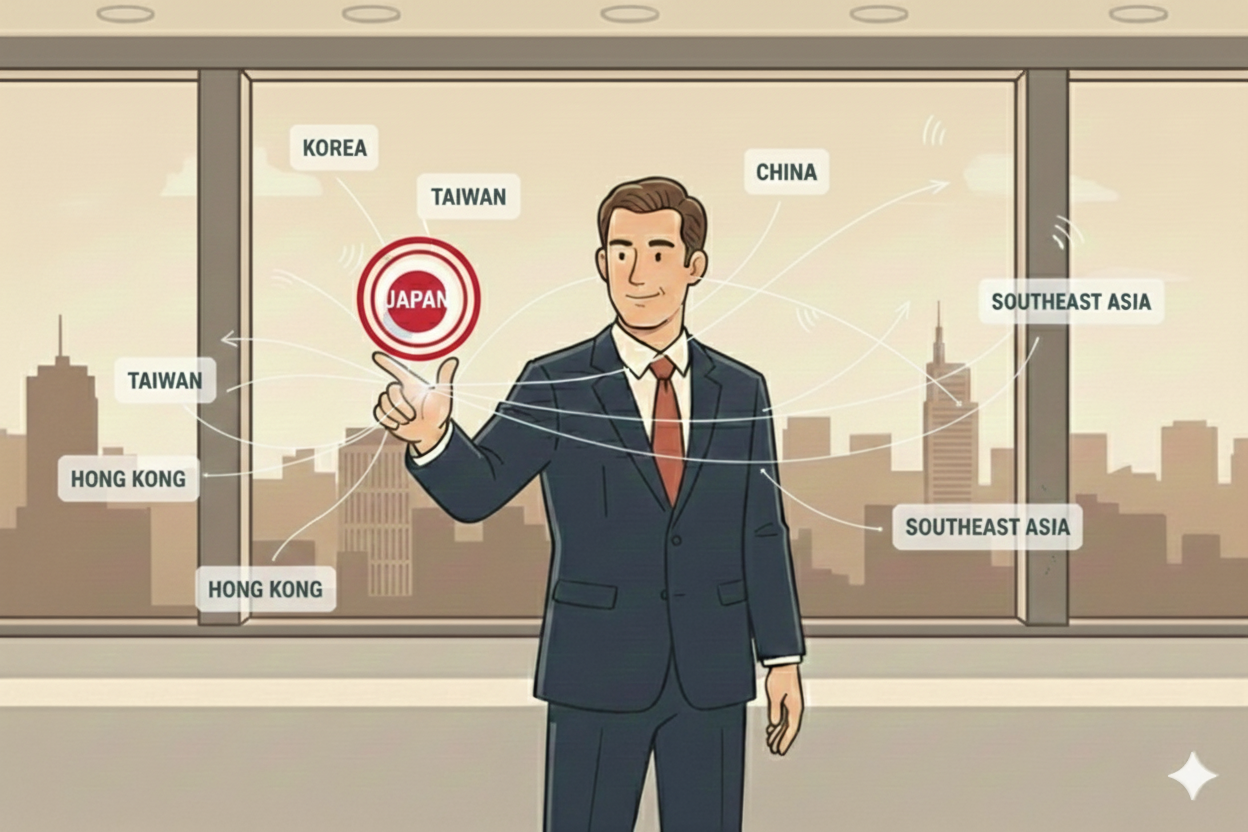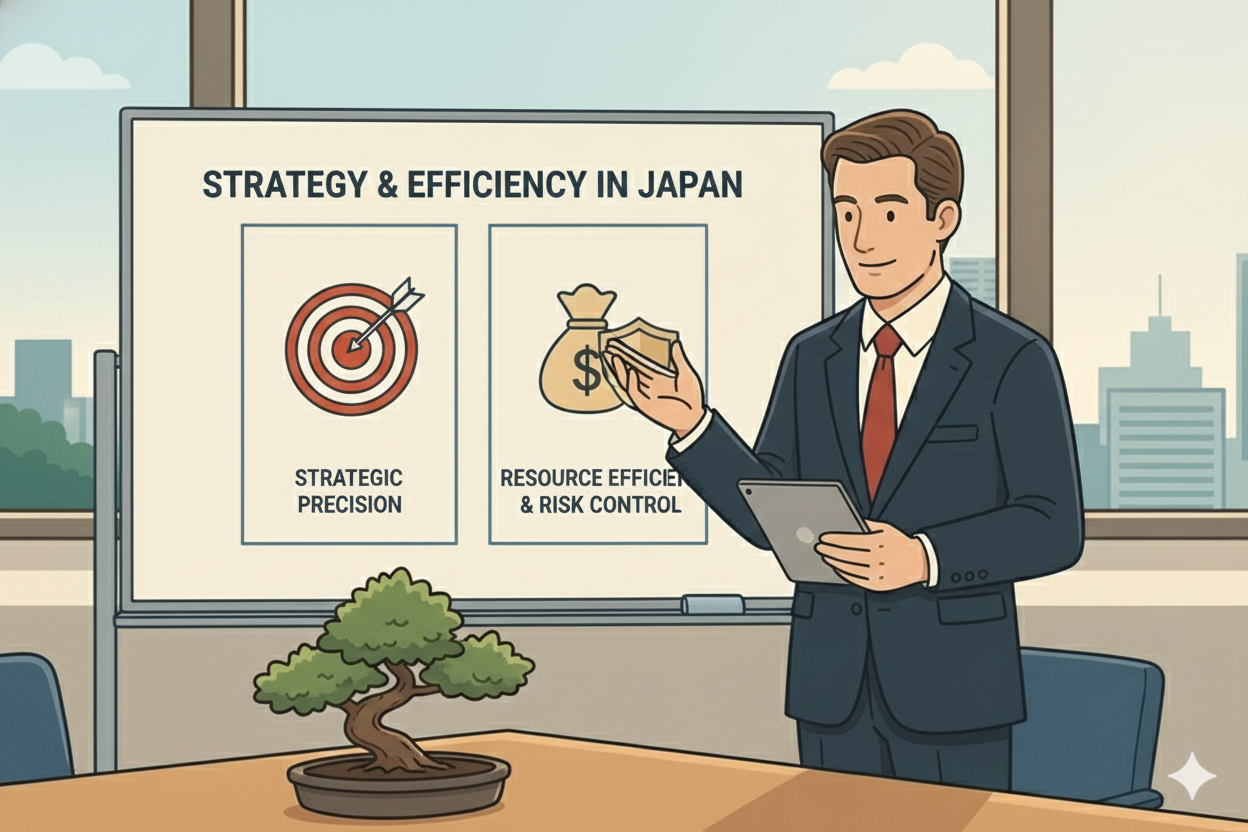JAPAN INSIGHTS
Your Practical Guide to Entering and Thriving in the Japanese Market
Stage 1 – Market Evaluation
Assessing market potential, competition, and consumer behavior before committing to entry.
Market Entry Strategy

Comment
Latest Inbound Travel Data: Asia’s Strong Consumer Momentum Toward Japan (2026)
Comment
Comment

Comment
What Western Brands Often Overlook: Real-World Friction in Japan
Comment
Comment

Japan B2B Go-To-Market Playbook (2026)

Comment
Japan Market Entry White Paper 2026
Comment
Comment

Comment
Market Entry into Japan: Strategic Choice Between Direct Operation and Distributor Partnership
Comment
Comment
Stage 2 – Company Establishment & Regulatory Setup
How to legally and structurally establish your presence in Japan.
Featured
Stage 3 – Product Import & Certification
Ensuring your product meets Japanese compliance and labeling standards.
More details about regulations or import issues can be found on our regulations page.
Stage 4 – Channel Development & Partnership Building
Designing your route-to-market: distributors, retailers, and digital channels.
Featured















